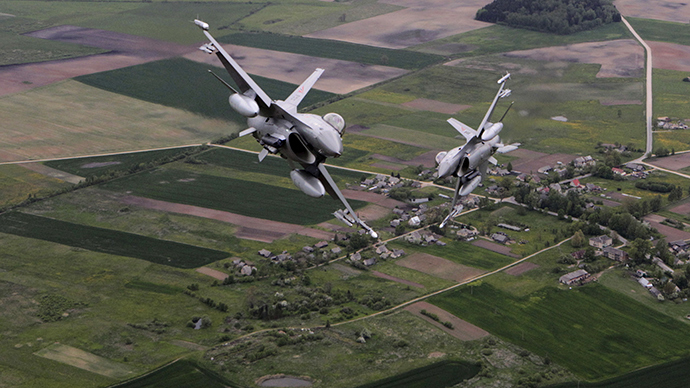NATO wanted to annex Russia's Kaliningrad on Thursday morning! According to a message posted on the Lithuanian armed forces website in what was described by Lithuanian officials as a hacker attack. An investigation has been launched.
The information on the army’s page alleges that ‘Sword-Stroke’ – the NATO military drills going on in Poland and the Baltic – are actually a preparation for the annexation of Kaliningrad, Russia’s westernmost city, sandwiched between Poland and Lithuania, which separates it from mainland Russia.
Lithuanian defense ministry spokesman, Victoria Cemenite, confirmed to the Delfi news agency that a hack has in fact occurred, and that the false information has since been removed from the website.

“Analysts with the National Center for Cybersecurity are
investigating the hack,” she added.
Reporters also learned that the “servers of the Headquarters
of the armed forces are being protected by a private
company.”
READ MORE: NATO in E. Europe: 6,000 in Lithuania war games, Polish HQ doubles troops
The drills (June 1-19), organized by US military in Europe, are taking place in Estonia, Latvia, Lithuania and Poland, and feature around 6,000 troops from 13 NATO member-states, as well as Finland. These are Lithuania’s biggest military exercises since joining the alliance in 2004.

NATO generals have told reporters the exercises are aimed at honing interoperability.
During the two-stage exercise, land and air forces have been carrying out joint operations in the field, followed by commanders conducting a separate computer simulation of a regional conflict.
The UK has announced that it has sent its biggest warship for the drills.
The exercises stem from concerns over neighboring Russia, intensified by the Baltic States and their allegations of Russian activities in Ukraine.
Moscow, for its part, has responded with promises to ramp up security in Crimea. “Naturally, we will increase our forces in Crimea because NATO countries have stepped up their activities in the immediate vicinity of our borders,” said Aleksandr Grushko, Russia’s envoy to NATO, in mid-May.

